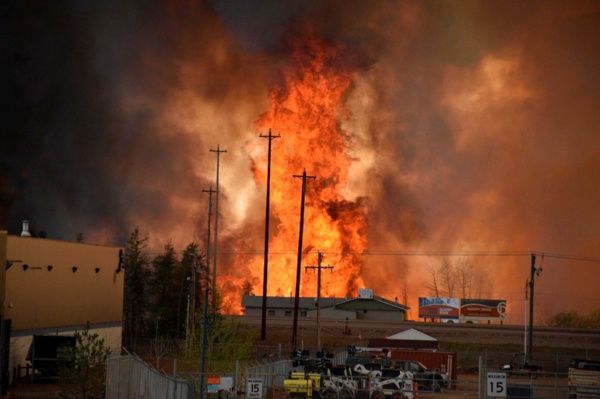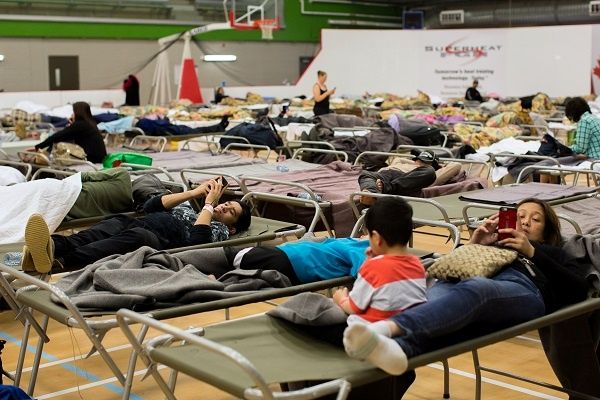A raging forest fire near Canada’s tar sands in the western province of Alberta that has forced evacuation of the 88,000-population city of Fort McMurray late Tuesday and Wednesday has caused devastating damage, but it has also shown the resilience of Indigenous communities already hard-hit by oil sands expansion on their lands.
RELATED:
Entire Canadian City Faces Being Reduced to Ashes by Huge Fire
“It’s a perfect example highlighting the kinds of people First Nations are,” Jesse Cardinal, coordinator of the Alberta-based Keepers of the Athabasca, told teleSUR Wednesday. “It highlights the true resilience the people have, kindness that people have, and that in time of crisis they are not the kind of people to close their doors.”
As hot, dry weather conditions make fighting the massive blaze difficult for firefighters and at least one neighborhood in Fort McMurray has been destroyed by the fire, nearby Indigenous communities so far unaffected by the disaster have offered refuge to those forced to flee their homes.

Flames rise in the industrial area south of Fort McMurray in Alberta, Canada | Photo: Reuters
“It’s interesting now, in a time of crisis, these people are still opening their doors to everybody,” Cardinal said. “For as bad as they are treated, for the last thought that they are to some people, whatever they have they are giving.”
She added that Indigenous communities are highly adaptable despite facing a long history of systematic dispossession.
“That’s always been how the First Nations people are, unfortunately to their demise because of our values and traditions,” she said. “A whole country got taken over because of that kindness and different cultures.”
RELATED:
Attawapiskat Protest: First Nations Suicide Crisis Is Genocide
Indigenous communities in Alberta and across the country continue to suffer the consequences of years of systemic government neglect and environmental racism. In Fort McKay for example, a community surrounded by the tar sands, local residents can only drink bottled water.
“Everybody knows that the water is not safe to drink” said Cardinal, explaining that Fort McMurray, over 35 miles north and upstream from Fort McKay, is home to a water treatment center, but First Nations communities on the other side of the tar sands runoff live a different reality.

Fort McMurray residents rest at a community centre in Anzac, Alberta, after being ordered to evacuate | Photo: Reuters
Nevertheless, communities that have very little are offering a safe harbor to people forced to evacuate from affected areas while also extending a hand to their own people to ensure they have support in a time of need.
The fire has consumed almost 25,000 acres and destroyed some 1,600 structures in its path, Canadian media reported Wednesday. According to local emergency responders, no one has been killed or injured by the blaze.
Harvey Scott, director of the Keepers of the Athabasca, pointed out that although wildfires are a natural occurrence as part of forest regeneration, the direction this fire has taken is causing “tremendous pain and suffering” to everyone in its path, including the First Nations whose ancestral land is burning.
“Fire is a natural part of our boreal ecosystem,” Scott told teleSUR. “This is a natural wild fire, but it is running into a city, so it is chaos there. Everyone is suffering.”
Firefighting crews are continuing to respond to the blaze, working to protect the area surrounding the airport located southeast of Fort McMurray as well as the downtown core and industrial part of the city.
Weather conditions will likely play a big part in deciding the fate of Fort McMurray, at the heart of the oil sands, as an expected cold front could help lower blazing temperatures, or prompt lightning storms and worsen the crisis.